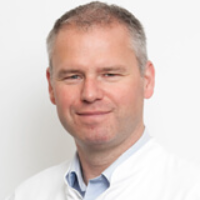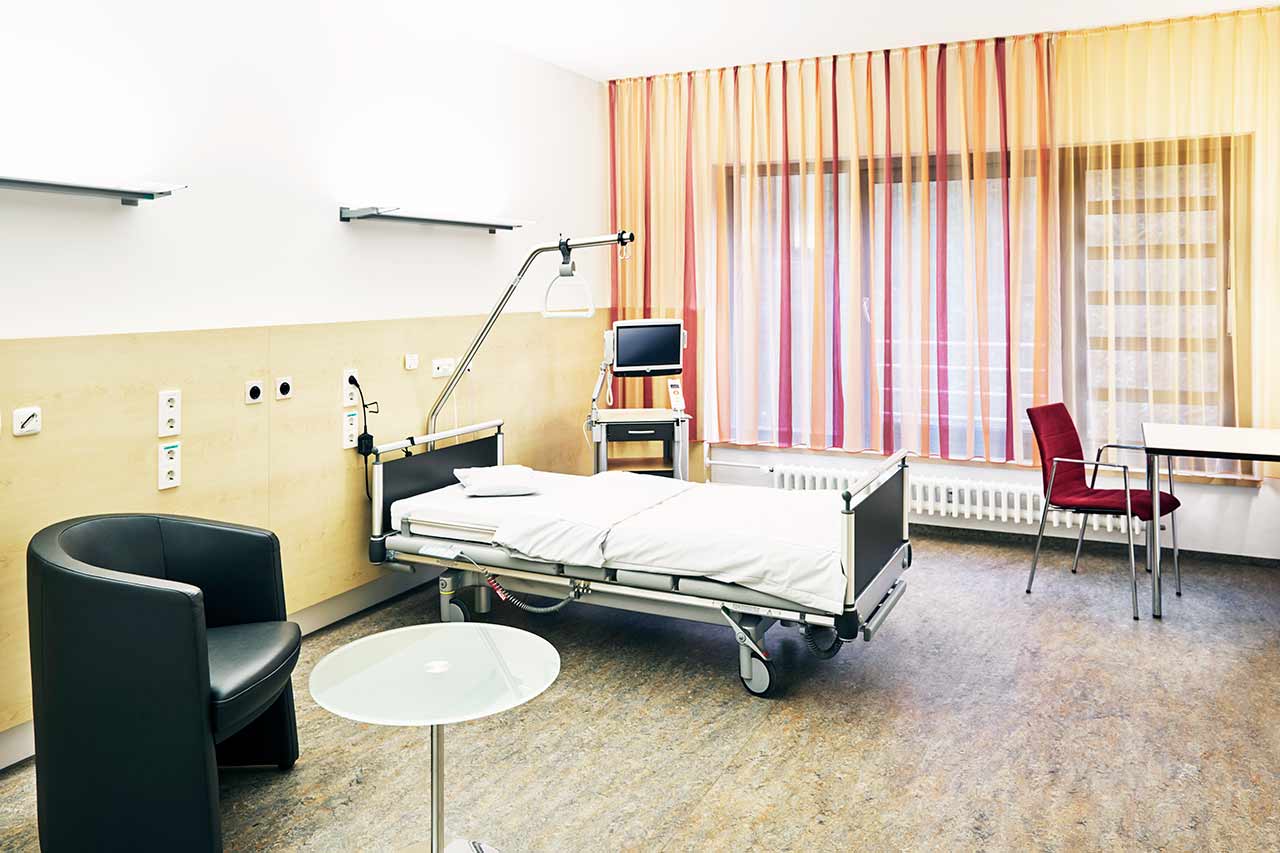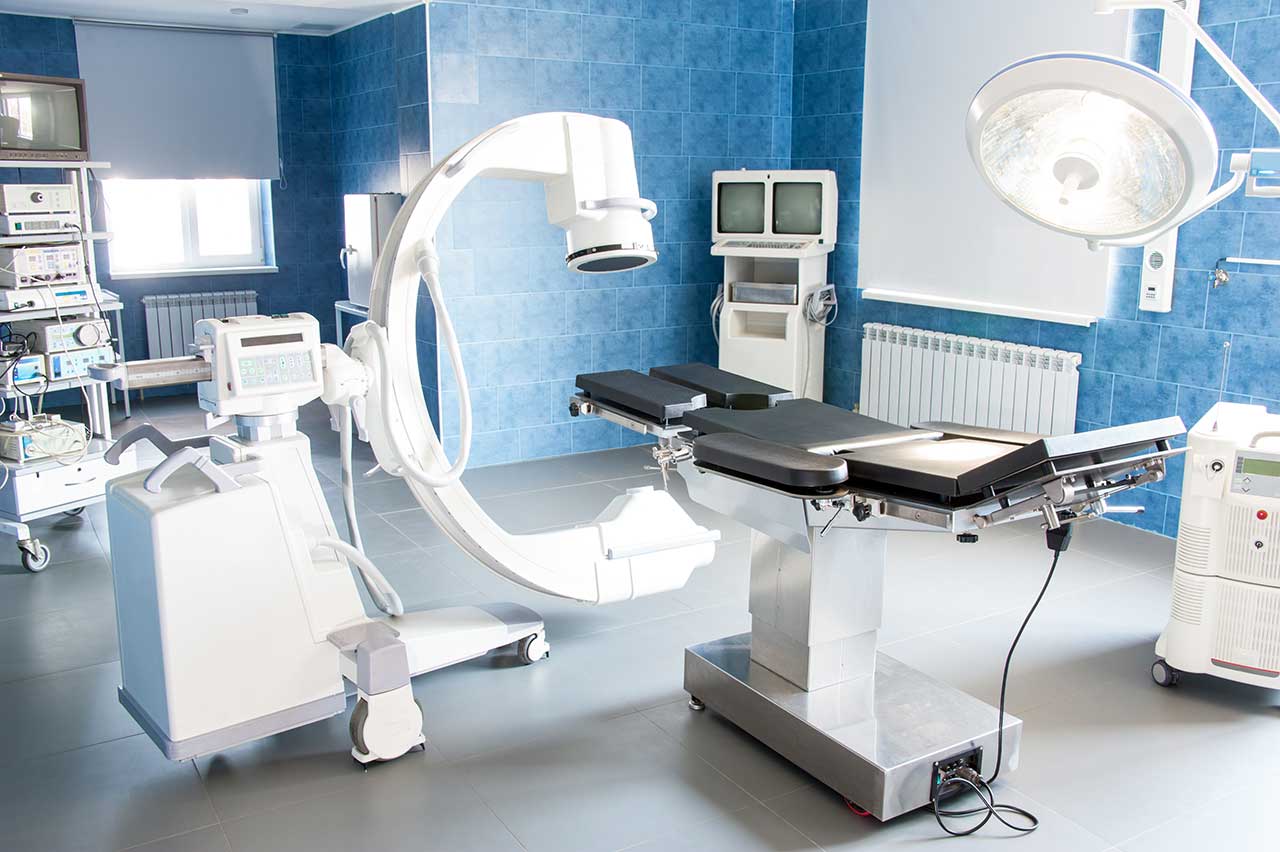
The program includes:
- Initial presentation in the clinic
- clinical history taking
- physical examination
- laboratory tests:
- complete blood count
- general urine analysis
- biochemical analysis of blood
- TSH-basal, fT3, fT4
- indicators of inflammation
- indicators blood coagulation
- x-ray/ MRI examination
- preoperative care
- cubital tunnel release
- symptomatic treatment
- cost of essential medicines
- nursing services
- full hospital accommodation
- elaboration further recommendations
Service
You may also book:
 BookingHealth Price from:
BookingHealth Price from:
About the department
The Department of Traumatology, Hand and Foot Surgery at the Marien Hospital Duesseldorf offers comprehensive diagnostics of the musculoskeletal system, as well as conservative and surgical treatment of bone fractures and lesions of the large joints. The department also provides medical care to patients with various diseases and malformations of the hand and foot. Of particular interest to the department's medical team is the treatment of bone fractures, as well as hip, knee and shoulder arthroplasty. The specialists of the medical facility also have successful experience in performing arthroscopic interventions on the large joints. Surgical treatment takes place in high-tech operating rooms with equipment for performing modern minimally invasive interventions that contribute to the patient's speedy recovery and his return to normal life. The treatment regimen is developed on an individual basis and conservative treatment options are considered first. If the patient still requires surgery, the most sparing type of intervention is selected. The department is headed by Dr. med. Albrecht Pilz.
The department's specialists have been treating bone fractures of varying severity for many years. The medical facility provides high-quality medical care to patients with fractures of the lower leg, forearm and shoulder, femur, as well as lumbar spine and pelvic fractures. The treatment of traumatic brain injuries is also within the competence of the doctors of the medical facility. The specialists have both conservative and surgical treatment methods in their arsenal. In most cases, the department's doctors resort to conservative methods. However, they also use advanced surgical techniques and modern implants to provide effective treatment of fractures. Such an approach allows the patient to avoid serious consequences, including muscle atrophy or limited joint mobility. The optimal type of therapy is prescribed by the attending physician, based on the specific type of injury, its severity and the patient's general health status.
Joint replacement surgery is an integral part of the department's clinical activities. The team of doctors of the medical facility performs operations for partial or total replacement of the knee, hip and shoulder joints. The main indication for arthroplasty is arthrosis (joint degeneration), which causes limited mobility and severe pain. The replacement of the joint with a prosthesis allows restoring normal mobility without pain, so that the patient can return to his usual lifestyle. The department's medical team works only with high-quality prostheses, the service life of which reaches 20 years. The advantage for the department's patient is the fact that arthroplasty is performed with the use of minimally invasive techniques – to form a surgical approach, the doctor makes several small incisions through which mini instruments and a video camera are inserted to transmit images of the surgical field to the monitor screen. When performing hip replacement surgery, the very latest navigation systems are also often used, which allow the prosthesis to be placed as accurately as possible.
The department also offers modern arthroscopic interventions on the knee and shoulder joints. The technique has been successfully used to eliminate such pathological changes as shoulder and knee fractures, including their consequences, shoulder instability, rotator cuff tear, shoulder impingement syndrome, meniscus tears, knee cartilage injuries, cruciate ligament tears, etc. Arthroscopic procedures can be used for both diagnostic and therapeutic purposes. Such interventions are characterized by minimal trauma rate, so the patient does not need a long recovery after the completion of treatment.
The department also deals with the treatment of patients with hand injuries and diseases. The doctors specialize in the treatment of trigger fingers, carpal tunnel syndrome, ganglion, tendovaginitis, Dupuytren's contracture, finger joint stiffness. As a rule, patients with hand pathologies require surgical intervention. The operation is followed by all the necessary therapeutic manipulations to restore the mobility of the hand.
The department's therapeutic options are complemented by foot surgery. The specialists of the medical facility successfully perform operations for the repair of Hallux valgus, hammer and claw toes, nail bed plastic surgery and other interventions. Minimally invasive surgical techniques are usually used, so the duration of hospital stay is as short as possible.
The department's clinical focuses include:
- Conservative and surgical treatment of bone fractures
- Fractures of the lower leg, including the upper part of the ankle joint
- Femur fractures
- Shoulder and forearm fractures
- Lumbar spine and pelvic fractures
- Traumatic brain injuries
- Knee, hip and shoulder arthroplasty
- Arthroscopic surgery
- Arthroscopic interventions on the knee joint
- Knee fractures and their consequences
- Meniscus tears
- Intra-articular cartilage injuries
- Cruciate ligament injuries
- Arthroscopic interventions on the shoulder joint
- Shoulder fractures and their consequences
- Shoulder instability after dislocation
- Tendon ruptures (rotator cuff, biceps)
- Shoulder impingement syndrome
- Subacromial degenerative shoulder diseases
- Arthroscopic interventions on the knee joint
- Hand surgery
- Compression syndromes (for example, carpal tunnel syndrome)
- Trigger fingers
- Ganglion
- Tendovaginitis
- Dupuytren's contracture
- Finger joint stiffness
- Foot surgery
- Hallux valgus
- Toe rigidity
- Metatarsal pain
- Hammer and claw toes
- Foot pain
- Nail bed injuries
- Other medical services
Photo of the doctor: (c) Marien Hospital Düsseldorf
About hospital
The Marien Hospital Duesseldorf is a modern medical facility in the very center of Duesseldorf and a recognized Research Center. The foundation stone of the hospital was laid back in 1864 with the support of the Catholic Church. The Christian principles of helping and supporting patients have not changed at all over the years, but the level of medical care has become fundamentally different: a small hospital has been transformed into a multidisciplinary medical center with 11 internal departments, institutes and 7 interdisciplinary centers. Thus, patients can receive a comprehensive diagnostic examination and treatment under one roof. The medical facility is an academic hospital, so patients have access to innovative achievements in the field of modern medicine and receive the most effective treatment.
The hospital has 437 beds for inpatient treatment. It provides first-class medical services to 63,000 patients every year. The doctors and nursing staff of the hospital strive to provide each patient with customized treatment, taking into account their wishes and needs. In addition to providing top-class medical care, the specialists pay attention to the humane attitude towards patients and their life situation. Doctors devote enough time to personal communication with patients and support them in every possible way on their path to recovery.
The team of the hospital consists of competent doctors who are the best professionals in their medical field. They all work in interdisciplinary cooperation. In their clinical practice, doctors use state-of-the-art equipment, the very latest technologies, as well as innovative treatment methods, which in combination allows achieving optimal treatment outcomes.
Photo: (с) depositphotos
Accommodation in hospital
Patients rooms
The patients of the Marien Hospital Duesseldorf live in comfortable patient rooms equipped with everything necessary. The room furnishing includes a comfortable bed with an orthopedic mattress, a bedside table, a wardrobe, a table, chairs, and a TV. The rooms are designed in light colors so that patients feel comfortable here. Each patient room also has an ensuite bathroom with shower and toilet.
Meals and Menus
The patients of the hospital are offered a healthy and balanced three meals a day: buffet breakfast, lunch and dinner. The menu also includes dietary and vegetarian dishes.
If for some reason you do not eat all the foods, you will be offered an individual menu. Please inform the medical staff about your food preferences prior to treatment.
Further details
Standard rooms include:
Religion
Religious services are available upon request.
Accompanying person
Your accompanying person may stay with you in your patient room or at the hotel of your choice during the inpatient program.
Hotel
You may stay at the hotel of your choice during the outpatient program. Our managers will support you for selecting the best option.





